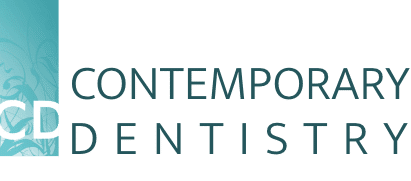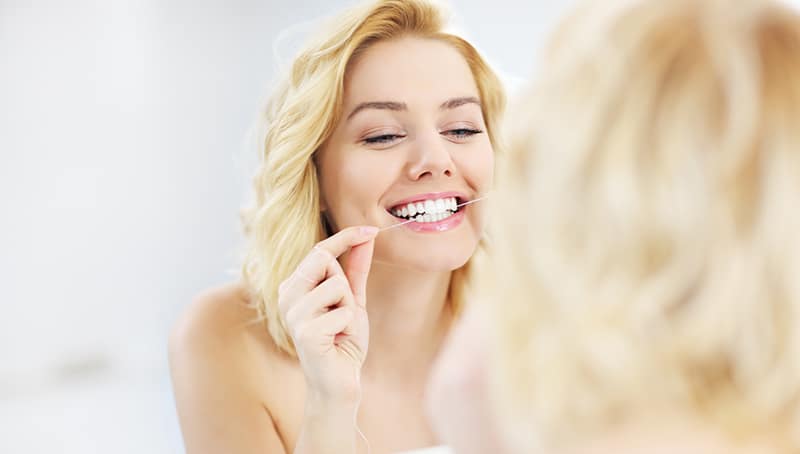Your Daily Cleanings
The most important part of your oral hygiene protection is your daily cleaning routine. Brush twice every day and floss once a day to make sure your teeth are clean.
Make sure you’re brushing for at least two minutes, but not more than three on a regular basis. You might think that if a little tooth brushing is good, then more must be better, but that’s not the case. Instead, over-brushing your teeth can lead to erosion of your tooth enamel, the smooth white outer coating on your teeth.
But that’s not the only way your daily cleaning can contribute to erosion of your teeth. If you brush too many times a day, you can also cause erosion. Stick to twice a day most days, with a third time only occasionally. Instead, keep teeth clean by chewing gum after a meal, ending your meal with hard, crunchy raw vegetables, then rinse with water. Also, try to avoid between-meal snacks.
Use a soft-bristled toothbrush to help avoid erosion, and make sure your toothpaste isn’t too abrasive.
And, of course, making regular dental appointment and getting a dental cleaning are also vital to helping keep your teeth clean.
How Often Do You Need to See the Dentist?
In general, the American Dental Association recommends that you make regular dental visits every six months, but that number isn’t ideal for everyone. You may need to see a dentist more often if:
- You have gum disease
- You have an elevated genetic risk for gum disease or tooth decay
- You have diabetes or other conditions that increase gum disease risk
- You have a compromised immune system
- You have dental implants or other vulnerable restorations
For other people who are at a very low risk for gum disease or tooth decay, we may recommend fewer visits.
Professional Dental Cleanings
Of course, professional dental cleanings are also vital to protecting your oral health. The goal of your daily oral hygiene is to remove food debris and oral bacteria that are clinging to your teeth in a muck called “plaque.” Unfortunately, it’s almost impossible to remove all the plaque all the time. When plaque isn’t removed, it takes in some of the minerals from your saliva (there to help keep your teeth strong), and turns into hard tartar. Tartar can’t be removed by brushing—it requires a professional dental cleaning when we can scrape it away.
If you don’t remove tartar, it can provide shelter for bacteria, making it easier for them to gain a foothold under your gums, potentially increasing your risk of gum disease.
Tooth Inspections
Your checkup will include a detailed inspection of your teeth, gums, and any dental restorations you have. Regular inspections let us detect any developing problems and recommend solutions while the problems are still small—and the solutions can be, too. These various dental procedures aimed at maintaining oral health are essential for your overall wellness.
Oral Health Impacts Your Overall Wellness
Your body doesn’t work in parts; it works as a whole. Each system has its own job, but they interact with each other constantly. When one part is off, it not only impacts that part of your body but everything else, too. Your oral health has a significant impact on your body’s other systems and how they function. Tooth infection and gum disease spreads throughout your body and cause problems like
- Diabetes complications
- Heart Disease (Heart attack and stroke)
- Respiratory problems
- Osteoporosis
- Alzheimer’s Disease
- Low birth weight if you’re pregnant
We emphasize holistic dentistry. That means that we are committed to doing our part to help you achieve wellness: the state of being in good health.
In many cases, we might just recommend slight changes to your oral hygiene—not even any specific procedures. To learn more call us at (585) 244-3337 or email us

